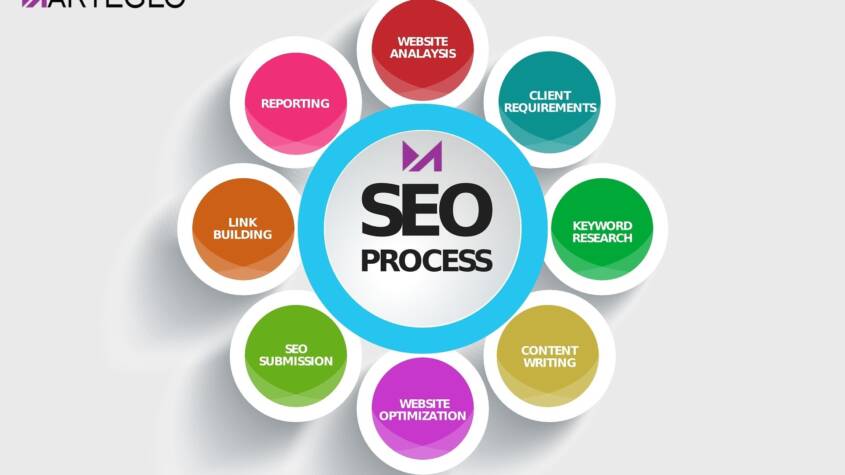
Ecommerce SEO packages are designed to help online stores improve their search engine rankings, increase organic traffic, and boost sales through tailored optimization strategies. These packages typically include keyword research, on-site and off-site SEO, technical fixes, and ongoing performance tracking, all aimed at enhancing the visibility of an ecommerce site.
The right ecommerce SEO package aligns with a business’s specific needs and budget, ensuring scalable growth and a measurable return on investment over time. By choosing an appropriate plan, businesses can address product listings, site structure, and content to attract more qualified visitors.
With many providers offering customizable options and varying levels of service, selecting the optimal SEO package requires understanding what elements are most impactful for the store’s current stage and goals. This article explores key factors to consider when evaluating ecommerce SEO packages.
What Are Ecommerce SEO Packages?
Ecommerce SEO packages are tailored service bundles designed to improve an online store’s search engine ranking and increase organic traffic. They cover a range of strategies that address content, technical infrastructure, and on-site elements critical to ecommerce performance.
These packages focus on targeting relevant keywords, enhancing website structure, and improving user experience. Each component plays a key role in boosting visibility and driving conversions for ecommerce businesses.
Core Components of Ecommerce SEO Packages
Core components usually include keyword research, competitor analysis, content strategy, and link building. Keyword research identifies terms potential customers use to find products, ensuring the site targets high-intent and relevant phrases.
Competitor analysis helps uncover market gaps and strategies that can be replicated or improved. Content strategy involves creating product descriptions, blog posts, and category pages optimized for search engines and user engagement.
Link building establishes the site’s authority by earning backlinks from reputable sources. Together, these elements build a foundation for consistent organic growth and improved search rankings.
On-Page Optimization Services
On-page optimization deals with improving elements directly on the website to align with search engine algorithms and enhance user experience. This includes optimizing product titles, meta descriptions, headers, and URLs with relevant keywords.
It also covers internal linking structures to help search engines better understand site hierarchy and encourage visitors to explore more pages. Image optimization is key, involving the use of descriptive alt texts and proper file sizes to improve page loading speed.
On-page services often extend to user interface improvements, ensuring the website is easy to navigate and mobile-friendly, which are critical factors for both SEO and conversions.
Technical SEO Solutions
Technical SEO focuses on the backend aspects that affect website performance and search engine crawling. It includes improving site speed, fixing broken links, and ensuring a secure browsing experience through HTTPS.
Other tasks involve creating and maintaining XML sitemaps, implementing structured data markup for product details, and resolving duplicate content issues. Mobile optimization is essential, as search engines prioritize mobile-first indexing.
Technical SEO ensures that search engines can efficiently crawl and index the ecommerce site, which directly impacts rankings and visibility. Maintaining a healthy technical foundation reduces errors that can hinder organic growth.
How to Choose the Best Ecommerce SEO Package
Selecting the right ecommerce SEO package requires attention to features that align with business goals, understanding pricing structures, and ensuring the package fits the company’s scale. Key factors include service coverage, cost-effectiveness, and customization for various business sizes.
Key Features to Compare
Critical features to evaluate include keyword research, on-page optimization, technical SEO, and content development. Quality backlink building and regular performance reports are important for tracking progress. Mobile optimization and site speed improvements should also be part of the package.
Look for packages that offer tailored strategies for product pages and category optimization. Integration with platforms like Shopify, Magento, or WooCommerce adds value. Support availability and updates on algorithm changes are additional factors to consider.
Evaluating Pricing Models
SEO pricing varies widely—common models include monthly retainer, project-based, and performance-based pricing. Retainers typically cover ongoing optimization and reporting, suitable for long-term growth. Project pricing fits one-time fixes or specific campaigns but may lack ongoing support.
Performance-based pricing ties cost to results like traffic or rankings but can be risky without clear metrics. It’s vital to clarify what services and deliverables are included in each pricing model. Comparing costs against expected ROI avoids overspending.
Tailoring Packages for Business Size
Small businesses benefit from basic packages focused on local SEO, competitor analysis, and foundational site optimization. These should be cost-effective and scalable as growth occurs.
Medium and large businesses require comprehensive packages covering extensive keyword strategies, content marketing, and technical SEO audits. Larger enterprises might need dedicated account managers and custom reporting.
A fit-for-purpose approach ensures resources align with business needs, avoiding unnecessary expenses or insufficient service coverage.
Audiobooks Online: Your Guide to Convenient Listening and Top Platforms
Audiobooks online offer a practical way to enjoy literature without needing to set aside t…







